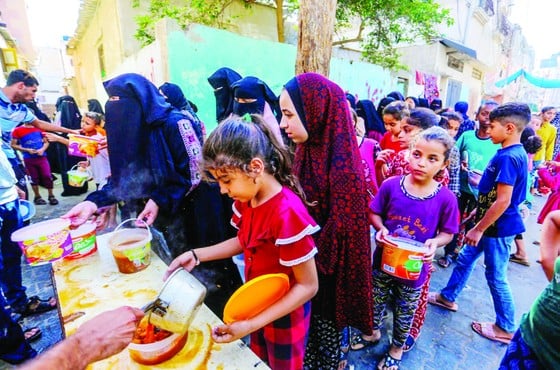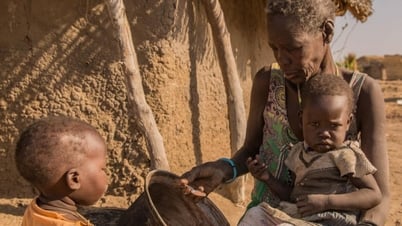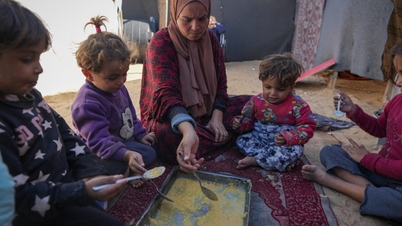SGGP
On November 20th, the Global Food Security Summit opened in London, England, amidst serious challenges to food security as a result of disease outbreaks, natural disasters, and conflicts.
 |
| Residents in the Gaza Strip receive food aid. Photo: AP |
The Inter-Agency Working Group in Central and East Africa (IAWG) reports that nearly 90 million people across Central and East Africa are facing unprecedented levels of hunger, and an increasing number are facing severe food insecurity. This is due to droughts, floods, conflicts, and soaring global food prices.
According to Peter Burgess, Director of the IAWG, many of these crises are increasingly being overlooked, and most humanitarian appeals in the region remain underfunded, leaving millions facing destitution or worse. More than 11.5 million children under the age of five in the region are suffering from acute malnutrition, of which 2.9 million will require treatment for life-threatening severe acute malnutrition (SAM).
According to the United Nations Food and Agriculture Organization (FAO), people in the Gaza Strip are suffering from food insecurity due to the relentless Israeli attacks on Gaza. The FAO reports that nearly 60% of households in Gaza are experiencing food shortages. The FAO is committed to addressing the urgent humanitarian needs of the Gaza Strip population, but calls for an immediate ceasefire. The right to food is a fundamental right.
Despite the growing need for food, funding to address the hunger and malnutrition crisis remained insufficient in 2023. Even more concerning, humanitarian aid budgets are projected to fall by as much as 50% in 2024. This crisis demands immediate international action and a coordinated response to mitigate the impact of hunger and implement interventions.
According to delegates at the London conference, these measures include: urgently expanding humanitarian assistance to communities in need and investing simultaneously in long-term resilience and recovery, particularly for climate-vulnerable and conflict-affected countries; using bilateral and multilateral diplomatic influence to ensure all parties in armed conflict fully comply with their obligations under international humanitarian law, particularly supporting UN Security Council Resolution 2417, to help reverse the global escalation of conflict-induced hunger.
Also at the conference, host country Prime Minister Rishi Sunak announced that the UK would establish a new science center where experts would develop climate-adaptive crops and identify risks to the global food system. The UK also views food insecurity as one of the most pressing global challenges. It is providing humanitarian aid worth up to £100 million to countries most severely affected by food insecurity: Ethiopia, Sudan, South Sudan, Afghanistan, Malawi, Somalia, and others.
Source













































































































Comment (0)